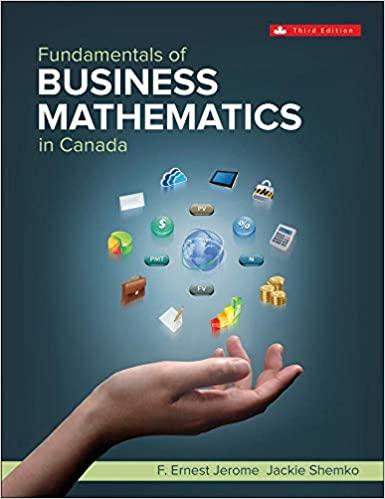Question
Assume a randomly selected American family owns two cars.We know that each of the two cars - both the older car and the newer car
Assume a randomly selected American family owns two cars.We know that each of the two cars - both the older car and the newer car - was manufactured in the U.S, Europe or Asia. Further assume that the family is equal likely to purchase any of the three types of cars, and the purchases of each of the cars are independent.
Note we use the following notation:U.S.-Europe indicates an outcome where the older car was manufactured in the U.S., and the newer car was manufactured in Europe.
1.How many outcomes are there from this random experiment? (your answer should be an integer)
2.What is NOT an event from this random experiment?
a.The family only owns one car.
b.Neither of the car is made in U.S.
c.At least one of the car is foreign (i.e not made in U.S.).
d.Both of the cars are foreign (i.e. not made in U.S.).
3.How many outcomes are contained in the event that one car is made in U.S. and the other is foreign (i.e. not made in U.S.)? (your answer should be an integer)
4.Select outcome(s) that is(are) in the event that at least one of the two cars is foreign. (select all that apply)
a.U.S.-Asia
b.Europe-Europe
c.U.S.-U.S.
5.What is the probability that at least one car is European? (3 decimal places)
Step by Step Solution
There are 3 Steps involved in it
Step: 1

Get Instant Access to Expert-Tailored Solutions
See step-by-step solutions with expert insights and AI powered tools for academic success
Step: 2

Step: 3

Ace Your Homework with AI
Get the answers you need in no time with our AI-driven, step-by-step assistance
Get Started


